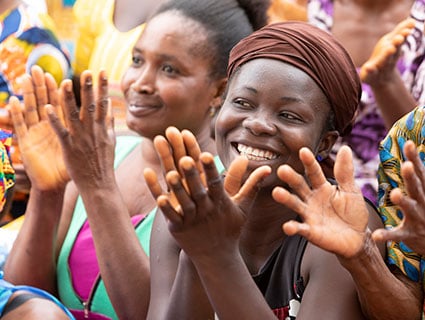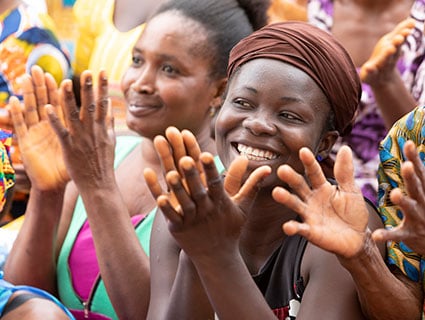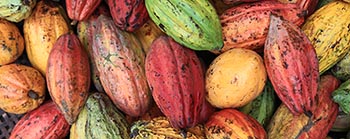Health and Nutrition
Improving the nutrition of cocoa farming families in Indonesia
October 13, 2017
Despite economic growth in recent years, 9.5 million children under age five in Indonesia are malnourished – the fifth highest rate in the world. Malnutrition costs Indonesia more than US$5 billion annually due to lost productivity, which is caused by low levels of education and diminished physical capability1.
Many farmers and their families survive largely on a diet of rice and grains. Farm workers would benefit from eating a more balanced diet because malnutrition can have a negative impact on health. Consequently, farm productivity and profitability can suffer if farmers or their families become sick and cannot work. It is a downward spiral, because if productivity and profitability fall, then ultimately this further impacts poverty, health and nutrition.
A study by an Australian University found that in Papua New Guinea, cocoa farmers were recently losing up to 1.5 days in every seven days, due to personal or family illness.
We began working with Swisscontact in 2014 to improve the health outcomes of cocoa farming communities in Sulawesi, Indonesia, by providing nutrition and health training. Community members learn how to grow vegetable gardens and maintain fishponds to ensure that they have access to diverse sources of nutrients. In addition to improving community health, the training helps women to develop new means of generating an income and farmers are encouraged to diversify their crops to improve their economic resilience.
We will continue to improve farmers’ general health through better nutrition by reaching 16,000 direct beneficiaries by the end of 2017.
Highlights
>14,400 households in Indonesian cocoa farming communities received training to improve their nutritional practices.
“Critical to our cocoa sector development approach is our partnerships with supply chain partners such as Cargill. Farmers respond much better to our training on good agricultural and good environmental practices when they expect that there will be a supply chain partner there at the end of the day to offer a price that is indicative of the quality of their cocoa, and the manner in which they produced it.”
Ross Jaax, Director, Sustainable Cocoa Production Program
Swisscontact | Swiss Foundation for Technical Cooperation
Read about how we are supporting women to increase their livelihoods
1 https://www.wfp.org/stories/10-facts-about-malnutrition-indonesia



